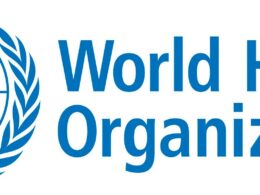Aliko Dangote further noted that his company constructed the 650,000 barrels-per-day capacity Dangote Refinery in Lagos without receiving any incentives from the government.
Lagos, Nigeria — The President of Dangote Group, Aliko Dangote, has urged the Nigerian government to discontinue crude-for-loan arrangements, arguing that such deals are detrimental to the country’s refining industry and impede the growth of local refineries.
Dangote made this appeal at a summit hosted by the Crude Oil Refinery Owners Association of Nigeria in Lagos on Tuesday. Speaking through the Group Executive Director, Mansur Ahmed, Dangote emphasized the need for Nigeria to focus on securing crude oil feedstock for domestic refineries rather than mortgaging its future oil revenue.
“To ensure sufficient feedstock availability, we must stop mortgaging crude. It is unfortunate that while countries like Norway are putting oil proceeds into a future fund through their national wealth funds, in Africa, we are spending oil proceeds from the future today,” Dangote said.
The call comes on the heels of a recent report revealing that the Nigerian National Petroleum Company Limited (NNPC) has pledged 272,500 barrels per day of crude oil through a series of crude-for-loan deals amounting to $8.86 billion.
The arrangement translates to about 8.17 million barrels of crude being used for loan repayments on a monthly basis, according to an analysis of data from the Nigeria Extractive Industries Transparency Initiative (NEITI) and the NNPC’s financial statements.
During the event, Dangote also highlighted the need for Nigeria to prioritize the implementation of the domestic crude supply obligation and expand crude production capacity to support local refinery demand.
“We will need to prioritize the implementation of the domestic crude supply obligation. We will need to expand crude production capacity to support demand from the refinery,” he added.
Dangote further noted that his company constructed the 650,000 barrels-per-day capacity Dangote Refinery in Lagos without receiving any incentives from the government. He stressed that, to turn Nigeria into a refining hub, the government needs to provide incentives for investors.
“We built the Dangote Refinery without a single incentive from the government. However, to achieve the vision of turning Nigeria into a refining hub for the region, investors need to be incentivized,” he stated.
Dangote disclosed that 1.8 million barrels of new refining capacity are expected to come on stream in the next three years in Kuwait, China, and Bahrain. He also noted that Europe is tightening environmental standards, with Holland and Belgium banning the export of low-quality petroleum products that used to be shipped to Africa.
Quoting a report, Dangote mentioned that several refineries across Europe and China, with a combined capacity of 3.6 million barrels per day, are likely to be shut down over the next few years. He cited the planned closure of Scotland’s only refinery next year and Shell’s decision to convert its 7.5 million tonnes-per-annum refinery in Germany into a lubricating plant.
“The opportunities are there. Africa imports about 3 million barrels per day of petroleum products. About half of this volume is imported by countries along the coast from Senegal to South Africa. These same countries produce over 3.4 million barrels of crude per day, which indeed highlights the problem of the dimension of excess crude production capacity without refining capacity. The imports come from Europe, Russia, and other parts of the world,” Dangote noted.
To harness these opportunities, Dangote emphasized the need for Africa to build 1.5 million barrels per day of additional refining capacity. He acknowledged that achieving this would be a challenging feat and called for strong government support and collaboration among stakeholders.










Join our Channel...